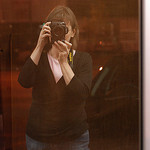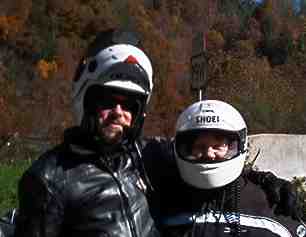"Did you sing "Here I Am, Lord" today?
(Search for "cayce" from this page)
In reading others' comments I came across several posts condemning the use of two songs:
1. Lord of the Dance
2. Pescador des Hombres (Lord, You have come to the seashore)
This was more than the usual "I hate Schutte/Haugen/Haas music, plus guitars, plus all of the Vatican II changes, etc..." rant. Those are somewhat matters of theology, somewhat taste, and we often see the two conflated.
For Lord of the Dance, the objections were to apparent Gnostic theology that appears in the song. One post:
There is also Sydney Carter's "hymn" called "Lord of the Dance" that comes from the Gnostic Acts of John where Jesus leads a round dance and where, like in other Gnostic literature, Jesus merely puts on a show of crucifixion and, trickster magician-like, reveals that the real Jesus didn't die on the cross, but rather a surrogate, and the real Jesus "leaped up high."Another:
Sydney Carter wrote "Lord of the Dance" inspired by Gustav Holst's musical setting of the explicitly Gnostic (and Docetic) "Acts of John," a work that was rejected by the Church early on. If you read the "Acts of John" you can clearly see why, and you can see how the "leaped up high" verse figured into the Docetic doctrine, along with the "trick" of substitution of the crucified figure. Holst himself was quite intrigued with the modern rediscovery of the occult, and was linked through family ties with Theosophists and astrologers (his lingering interest inspired his composition of "The Planets").
I'll admit to preferring the original Simple Gifts setting of this tune, and to feeling that the cheerful cadence/notes didn't fit well with "they whipped and they stripped and they hung me high." If it's true that the lyrics are heretical, and I'll leave it to those with better theological training to let me know this, then we shouldn't sing it.
A harder question arises with comments posted about Pescador des Hombres. I had thought some about this song lately, wondering if we'll sing it next Sunday when the Gospel tells us of Jesus calling Peter, James & John at the seashore. There's some lovely harmony possible on the refrain, and I've enjoyed the 2-3 times I've gotten to sing it.
Per St. Blog's posters, and confirmed by easy Google searches, the song's original Spanish lyrics by Cesáreo Gabaráin were translated by Robert C. Trupia. Trupia, a former priest, was laicized (defrocked) by the Diocese of Tuscon for sexual misconduct, including pedophilia. Some of the accusations come from recovered memories, but some of the behavior was witnessed, including by a housekeeper.
One strong opinion:
The original Spanish hymn was written by one Cesario Gabarain (an unobjectionable person, as far as I know) and Trupia wrote the English translation. There is another, less common translation out there by Willard Jabusch called "Lord, When You Came." (Jabusch is a writer of mediocre hymns like "The King of Glory" and "Whatsoever You Do," but, like Gabarain, not an immoral person as far as I know). I suppose this means that admirers of the hymn could salvage it for continued use by availing themselves of the Jabusch translation, but if you ask me, the hymn is so contaminated that it should be forgotten forever, starting immediately (italics mine.)We're known by the company we keep. In separating myself from sin (not sinners, as we heard clearly this AM), do I have a responsibility NOT TO SING a song because the translator is tainted/evil? Should I only sing the Spanish lyrics? If no one knows the backstory, does it matter in performance? In worship? In the shower?
Months ago, I learned that lots of RC parishes around the country do not allow use of "The Wedding March" for weddings, because of the origins of the tune.
From Adoremus.
It has become really traditional to use the Bridal Chorus from Wagner's opera Lohengrin for the Procession, and the Wedding March from Mendelssohn's ballet Midsummer Night's Dream for the Recession. Observe the words "opera" and "ballet." Both of these marches were written for the theater stage. Both are fine pieces of music, but are tied into stories of fantasy, murder, sex, and other delights. Are they suitable for Catholic weddings? It should be an easy answer, but it is not. Back in the 1930s or so when the Society of Saint Gregory published its Black List and White List of Catholic Music, those marches were absolutely forbidden, sent to the Black List, and no more discussion, thank you. Today it is left to the local Ordinary (the head of your diocese). Some places have no restrictions, since that music has become so traditional, but some still forbid them. Some have made no statements one way or the other.From the Diocese of San Diego.
The so-called traditional "wedding marches" by Wagner and Mendelssohn have nothing to do with the Sacred Liturgy and may not be used. In fact, the origin of these compositions borders on the profane and the ridiculous. The "Bridal Chorus" ("Here Comes the Bride") from Wagner's opera, Lohengrin, accompanies an illicit ceremony, a tragic bedroom fiasco. Mendelssohn's incidental music to Shakespeare's Midsummer Night's Dream accompanies a farcical wedding. Even though they are frequently used in the United States in Protestant churches, they are rarely used in Catholic churches. For the above mentioned reasons, to use them in connection with a church ceremony is simply inappropriate.These two songs, whose origins almost NO ONE knows, are banned because of their origins. Do we/should we do anything similar to songs whose composers, translators, covering artists, etc., are tainted? Inquiring minds need to know...





6 comments:
I think it depends on several factors. One is: just how offensive is this to folks who know about it?
Basically, it's a political correctness issue (and I don't use that term pejoratively in this case). Can I use the verb "gyp" to refer to a cheater? Supposedly it's short for "gypsy". But since I have never met anyone who actually finds the term upsetting (as opposed to theoretically offensive), then I don't think it's bad. On the other hand, using "Jew" as a verb certainly would offend people, and therefore it's not in the same category.
Maybe the same principle should be used here. Is there a reasonable chance that someone hearing this song will take it as an endorsement of the sins of the author/translator?
One other factor: According to one comment on Amy's thread, the translator of one of the hymns deliberately put sexual double-entendres in it.
I would totally ban a hymn in a situation like this.
A comparable problem is if you discover that a religious painter has deliberately added heretical or obscene elements to a religious painting. Even if these are not noticeable by the vast majority of viewers, I believe that a painting such as this should not be used in devotional contexts, ever. (Sadly, one of the great saints has had their art abused in this manner ever since the Renaissance.)
If we're going ban songs merely because of the moral character of the writer, I can think of a whole raft of songs that should be removed from our repertoire. It seems like three out of four Sundays I hear lyrics written by a guy who is a known adulterer and murderer who pretty much avoided civil penalties because he was so highly placed in the governent. On top of that, things in his own household were so bad that one of his sons tried to kill him and another became history's most notorious bigamist (most of whose wives and girlfriends were, naturally, not believers).
A record like that and still were sing David's songs nearly every week, unconcerned by the moral taint.
Izzy writes:
"A record like that and still we're sing David's songs nearly every week, unconcerned by the moral taint."
I had much the same thought later on, and posted it to Open Book, where the question had first been raised.
Given the typeface in our missallette, I really don't think folks notice the names of authors, composers, translators, etc. Certainly not long enough to recall the name & go home & look it up.
As for double entrendres, Izzy reminds me that his male sophomore (yes, sophomoric) Latin students burst into giggles every 2-3 sentences, discovering what they see as a double entendre. I'm not sure we can even apply that standard.
Too much political correctness and we totally ignore the message of yesterday's epistle.
I think we have to let the lyrics stand on their own merit.
I'm kinda bummed, Lord of the Dance is my favorite church song. Can I vote (no theological training here) that it is not heretical? Even if it is, I still love it.
Post a Comment